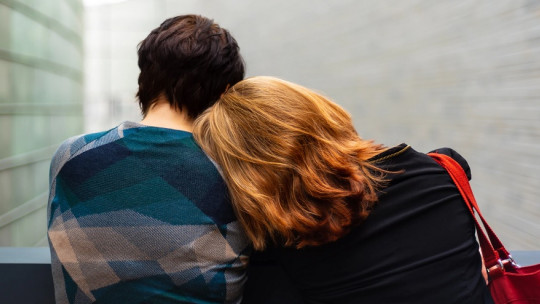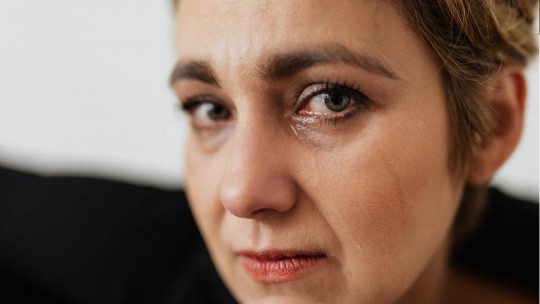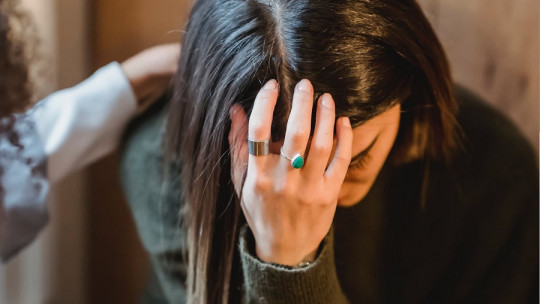
The death of a loved one is one of the moments in everyone’s life where the human need for contact becomes most evident.
There is no single correct way to go through the grieving process nor an adequate time frame to do it For example, unexpected deaths or deaths in complicated circumstances (accidents, suicides, missing people) usually cause more difficulties in grieving.
But what is grief?
There are many articles and information about what grief is and its phases, here I would simply like to emphasize that grief is a normal process that we go through when we have lost a loved one and in which we have to adapt to a new reality. It is important to emphasize the normality of pain in the grieving process since we live in a society that tolerates discomfort very little.
We cannot avoid the emotional pain we feel when we have lost someone important in our lives, there are no shortcuts or tricks to avoid suffering. Understanding the process and accepting it is the beginning of emotional healing that can lead to turning grief into an enriching experience and personal growth.
The normal grieving process is not an illness, but the development of acceptance of loss. Dejection and sadness are common emotions. Each person feels this experience in their own way and experiences the intensity of that pain subjectively. Family and friends may share the expression and manifestation of that pain, but not what it really feels and, even less, its magnitude.
The normal grieving process becomes a roller coaster of emotions to varying degrees. You go from disbelief in death to irritability, fear, frustration or confusion, all of which is normal, natural and healthy. It is also common to feel anxiety, tachycardia, nausea, tiredness, headaches, disinterest and the urge to cry Facing these emotions and feeling the pain is the key to overcoming grief. Avoiding suffering by taking medications or consuming alcohol and drugs is a big mistake.
When the duel gets complicated
In recent years, there has been a lot of research into the risk factors that cause complications in the natural grieving process, what is known as complicated grief. This type of grief is one whose intensification reaches the level at which the person is overwhelmed, resorts to maladaptive behaviors or remains rigidly in this state without advancing in the grief process towards its resolution.
The Diagnostic and Statistical Manual of Mental Disorders in its fifth edition (DSM 5), calls it persistent complex grief and is characterized by suffering continuous longing/longing for the deceased, accompanied by intense grief and frequent crying and worry about the deceased or about the deceased. way he died. These symptoms must continue for at least 12 months after the person’s death (6 in children), although this criterion must be put into perspective, since each person is different. What is important is each person’s level of suffering and whether they consider themselves stuck in it.
Types of complicated grief
One of the world’s leading grief experts, JW Worden, proposed a distinction between four types of complicated grief:
Chronic grief
Symptoms persist for years and one of the most notable aspects of this type of grief is that the person experiences the feeling of being incomplete.
Delayed Duel
In this type of grief, the characteristic symptoms appear months or even years after the death of the loved one. Sometimes it happens when the suffering is too intense, or when conditions force the person to stay strong and postpone their pain
Exaggerated duel
Worden speaks of exaggerated grief when the symptoms are excessive and practically prevent the person from leading a normal life.
masked duel
Problems manifest, such as drug, alcohol or drug abuse and that the person is unable to recognize that they have to do with the loss suffered.
Differences between normal grief and pathological grief
What differentiates pathological grief from normal grief is the intensity of the symptoms, the duration of the reaction and the appearance of some symptoms that do not occur in normal grief such as hallucinations or delusional ideas.
In the initial phases of complicated grief, physical symptoms usually predominate, such as insomnia, fatigue and/or weight loss, but over time, emotional and psychological symptoms such as anger, rage become more intense and frequent. and anguish, as well as hopelessness or desire to die.
Grief in times of pandemic
Tributes, funeral rites and farewells are an important part of the healthy grieving process Throughout the history of humanity, the need to have time and physical space, often shared, in which to show loss, has become clear.
In the horrible circumstances that plague us today, where our family and friends die in the distance. When a very short period of time elapses between diagnosis and death that prevents us from preparing for grief. Where we cannot give one last kiss, one last look, one last hug.
In these circumstances it is normal that we can remain blocked by guilt of the type “I should have done, or said something more” or that anger (“damn government, they didn’t do everything necessary in the hospital”) or deep sadness (“I will never stop suffering”), prevent us from move forward in rethinking our life without the person we love.
In these cases, it is possible that we develop pathological grief and it is advisable to seek advice from a grief therapist.
How to cope with delayed grief
Finally, I would like to recommend some very useful guidelines for dealing with the loss of a loved one in these circumstances.
Perform farewell rituals.
You can prepare a virtual meeting via Skype or WhatsApp and organize a farewell, even if you can’t be together.
Agree on a time and pay tribute to that person by telling anecdotes, writing on your social networks or, for example, lighting candles at the same time. You can create a group or make a page for that person and have each person write what they feel, upload photographs and share their feelings.
It is important to include people with functional diversity and children in these rituals explaining the situation to them in a clear and natural way, assessing the age and capabilities of each one, and how they can participate.
If you do not feel strong enough to share the loss together, you have the right to do so more intimately or alone. Write a poem, journal, or letter telling how you feel or what you would say to that person. You can also draw pictures if the words don’t come out. Do it the way that makes you feel best.
Create a space in a room to remember Choose a photo, decorate it however you like, with candles or flowers or even objects belonging to that person. Whenever you need it, go to that corner and express yourself. Tell him what your life will be like from now on, remind him what things you liked and say goodbye if you need to.
Practice self-care
Having explained the roller coaster we go through in a grieving process, we must take into account the fact of not “losing ourselves” in said process.
Try to take care of your diet and your rest times Try to maintain your schedule and listen to your body, if you need to slow down, do it, allow yourself to recover, but don’t give up.
Practice exercise, look for an occupation such as cooking, reading, meditating and take advantage of a ray of sunlight on the balcony or window.
It is normal for feelings of sadness or anger to emerge, If you need to be alone or contact people who make you feel good, do it You will surely receive calls from many people to offer their condolences and interest in you. Give them guidelines and schedules.
Seek help to manage your emotions, either within family and friends or, if necessary, professional psychologists specializing in grief. The telephone lines provided by the state (health center, red cross, police, etc.) can also be of great help.
Finally, Avoid overloading yourself with information that “contaminates” you; look for activities that relax you don’t make very important decisions and don’t demand too much of yourself.
Allow yourself time to heal
Remember that this situation will not last forever and that, when all this is over, you will be able to say goodbye in person with all your loved ones.
Conclusion
In this article we wanted to highlight the importance of carrying out the grieving process in the most natural and fluid way possible to avoid, as much as possible, a possible later complication.
It is known that In special circumstances like the ones we are experiencing, there is a greater probability that natural grief will become pathological, so everything we can do now to cope with this process will help us prevent a possible disorder. If you see that this situation is becoming too complicated for you or those close to you and that the resources available to you are not enough, do not hesitate to request the help of a grief psychologist.








